- Home
- JoAnn Ross
Midnight Runaway Page 18
Midnight Runaway Read online
Page 18
“I worked in counterintelligence for eight years and yes, I did some things I’m not very proud of. But they seemed necessary at the time. When I discovered that the once unthinkable was in danger of becoming the routine, I got out.
“I was sitting on the beach, minding my own business, trying to decide what I was going to do with the rest of my life, when your crazy uncle showed up and got himself killed. Or at least I believed he was dead,” Dash amended. “The next thing I knew St. John’s men were climbing all over the island, furious as hell because Darcy had landed himself in the middle of their damn black program and—”
“Wait a minute,” Claren broke in. “A black program? I don’t understand. What does some type of civil-rights legislation have to do with terrorists?”
“You’re thinking of a program for blacks,” Dash corrected. “A black program is one that’s kept off the books when it’s time for congressional funding.”
“Because it’s illegal?”
Dash winced, recalling how minor nuances such as legality and morality had once seemed nothing more than an irritating deterrent to his work.
“Not exactly. And before you get up on your high horse, I didn’t want anything to do with this entire operation. I was sick of playing James Bond. But then I started thinking about Darcy and what a nice old guy he’d seemed to be and how he’d obviously adored you and before I knew it, I was volunteering to come here and keep an eye on you.”
“Because you thought I was a terrorist.”
“I didn’t think you were a terrorist, dammit!” Dash roared. “From the moment I met you, I realized that you were about as benign as Mary Poppins.”
“I’m not certain I should take that as a compliment.”
“I meant it as one.”
“You said you got sick of playing spy. Is that why you went to work for your wife’s father?”
Her voice was cooler than he’d heard it. And unnaturally calm. Dash worried that she’d already shut her heart to him.
“Partially. But she wasn’t my wife at the time. I’d been working for Warren Van Pelt for about six months when Julia came back from Europe to lick her wounds after a particularly messy divorce.
“She saw me as a challenge and a trophy. After the men of her social set, stuffy, predictable guys like Byrd, she found me an interesting specimen.”
“She actually said that? In that way?”
“Actually that was one of the nicer descriptions she used,” he allowed. “By the time we got a divorce, she was opting for much harsher terms.” He shrugged. “Some of which I probably deserved. It didn’t take long for both of us to realize that I didn’t belong in her world any more than I belonged in her father’s rigid corporate structure. Julia and I stuck it out for three years before finally calling it quits. That’s when I went to Jamaica….
“But I don’t want to talk about my marriage,” he said. “I brought you here to talk about us.”
“I don’t know,” Claren mused. “If you’re trying to prove that you’ve mellowed since your marriage, Dash, I don’t think locking me up in a jail cell is the way to do it.”
“The only thing I’m trying to prove is that I love you, dammit!” Dash roared again, frustration eating away at the ragged edges of his self-control.
“By holding me hostage?”
“If that’s what it takes, yes.”
Claren was furious at him for lying to her, for pretending to be something he wasn’t, for tossing her into this cell and literally throwing away the key. But she also loved him. Whoever he was, whatever he’d done.
“I suppose I can’t say you didn’t warn me,” she murmured, thinking back on all the reasons he’d given why they shouldn’t become lovers, all the ways he was wrong for her.
“I knew that first time I kissed you, in the library, that it was already too late for warnings,” he said.
“Too late for me? Because you realized I was falling in love with you?”
“Too late for you, too late for me. Too late for both of us.” His voice had dropped to the lower registers, to that deep, husky tone that never failed to thrill her. “I think I fell in love with you the moment I saw you marching down that road with your veil flying out behind you and your satin train dragging in the dirt.”
“I was so upset,” she said softly. “And you wouldn’t leave me alone.”
“I couldn’t. For numerous reasons, the least of which concerned St. John and that damn goddess.”
Sensing her surrender, he put his arms around her and drew her close. At first she stiffened, but then, as he ran his hand down her hair, she began to relax.
“I came here to do a job, Claren. And I kept trying to convince myself that’s the only reason I was staying, even though I think I knew from the beginning that you were a great deal more than an assignment.
“I also tried to tell myself that I had good reasons for lying to you, Irish. And to tell you the truth, I’d probably do it all over again if I thought it would keep you safe. But I never lied about my feelings or my background or the fact that I want nothing more than to spend the rest of my life making mad passionate love—and babies—with you.”
Claren decided that she couldn’t demand total honesty from Dash without being honest herself. “Speaking of babies,” she said softly, “I think we’ve already got a head start.”
His startled gaze dropped to her still-flat stomach. “Are you sure? How—”
“I’m pretty sure,” Claren said. “At least, if you can believe the test kit I bought at the drugstore this morning. As for how, I assume in the usual way.”
“But when?” He’d been so careful, except for that first morning. “Oh, God, please don’t tell me that we made our baby in that ridiculous adult motel.”
Claren’s smug, womanly smile reminded Dash of the Mona Lisa. “I’m afraid so. Which means we both have to swear never to let the truth come out. Can you imagine growing up with the knowledge that you’d been conceived in a heart-shaped water bed?”
She was having his child. Fate, Dash decided, was a remarkable thing. “I’ve done nothing in my life to deserve you,” he said, his voice husky with emotion. “But if you’re still in the market for a husband handyman for your inn and a father for our child, I’d like to apply for the job.”
“Back there, on the pier,” she said quietly, gesturing to the ferry landing next door, “I wanted to hate you. I wanted to hurt you and I think I even wanted you to crawl after me on your hands and knees.”
“If that’s all it takes—”
“No.” Claren’s lips curved in a faint smile. “You don’t have to get down on your knees, Dash. Because the absolutely frightening truth is that I love you and I want to spend the rest of my life with you. To work with you and have your babies and sit beside you on the porch in our rocking chairs, watching our twenty-five grandchildren play tag on the lawn in front of the inn.”
Dash lifted a brow. “Twenty-five?”
“Well, if we’re going to have five children, and each of them has another five—”
“I get the idea.” Pulling her against him, he kissed her, his lips creating sparks from one smiling corner of her mouth to the other. It was going to be all right. They were going to be all right.
“There’s something I was going to give you,” Dash said. “After I’d come clean about everything.” He reached into his suit pocket and pulled out a pair of red, white and blue envelopes.
“Airline tickets? To Ireland?”
“For our honeymoon. There’s something else.” He took another slip of paper from the same pocket.
“It’s a bill of sale,” Claren said on a sharp indrawn breath.
“For a certain horse farm in County Clare.”
“Please Dash,” she begged, unable to read the print because of the tears filling her eyes, “don’t tease me. Not about this.”
“I wouldn’t do that. I’ve talked with the couple currently living in your old house by phone a few times, and th
ey seem like nice folks. I think you’ll like them. They’ve agreed to stay on as caretakers. If you want, we can move there—”
“No.” Her head was spinning. So much had happened in the past hour. Her beloved Darcy was alive, Dash was a spy and she’d finally gotten her old home—her parents’ home—back again. “I want our children to grow up Americans,” she said. “But I want them to love Ireland, too.”
“We’ll take lots of vacations.”
“I don’t know how to thank you, Dash,” Claren said breathlessly. “This means all the world to me.”
“I’d give you the world if I could.”
And he would, too, Claren knew. He’d take it apart and put it together any way she wanted, if only to make her happy.
“I don’t want the world, Dash. I only want you. So why don’t you take the spare key out of your pocket and unlock the door like the clever ex-spy I fell in love with and we’ll go home and make up properly.”
Her lips were sweet and tender, her body was practically melting against him and Dash felt his own desire rising to new heights. But there was one small problem.
“Uh, Claren…”
“Mmm?” She was nibbling on his earlobe.
“I’m afraid you kind of threw me off track at the pier and I made a major miscalculation.”
She looked up at him with laughing eyes. “Dash MacKenzie, master spy, doesn’t have another key?”
“Afraid not.”
“Well, then,” she said on a slow, seductive smile. “I suppose we’ll just have to think up a way to pass the time until Molly comes back in the morning. Any ideas?”
“How about I hold you in protective custody?”
“My hero.” Claren sighed dramatically as he purposefully pressed her down against the mattress of the narrow cot.
That was all either of them was to say for a very long time.
* * * * *
Keep reading for a special preview of Herons Landing, the exciting new series from New York Times bestselling author JoAnn Ross and HQN Books!
CHAPTER 1
SETH HARPER WAS spending a Sunday spring afternoon detailing his wife’s Rallye Red Honda Civic when he learned that she’d been killed by a suicide bomber in Afghanistan.
Despite the Pacific Northwest’s reputation for unrelenting rain, the sun was shining so brightly that the Army notification officers—a man and a woman in dark blue uniforms and black shoes spit-shined to a mirror gloss—had been wearing shades. Or maybe, Seth considered, as they’d approached the driveway in what appeared to be slow motion, they would’ve worn them anyway. Like armor, providing emotional distance from the poor bastard whose life they were about to blow to smithereens.
At the one survivor grief meeting he’d later attended (only to get his fretting mother off his back), he’d heard stories from other spouses who’d experienced a sudden, painful jolt of loss before their official notice. Seth hadn’t received any advance warning. Which was why, at first, the officers’ words had been an incomprehensible buzz in his ears. Like distant radio static.
Zoe couldn’t be dead. His wife wasn’t a combat soldier. She was an Army surgical nurse, working in a heavily protected military base hospital, who’d be returning to civilian life in two weeks. Seth still had a bunch of stuff on his homecoming punch list to do. After buffing the wax off the Civic’s hood and shining up the chrome wheels, his next project was to paint the walls white in the nursery he’d added on to their Folk Victorian cottage for the baby they’d be making.
She’d begun talking a lot about baby stuff early in her deployment. Although Seth was as clueless as the average guy about a woman’s mind, it didn’t take Dr. Phil to realize that she was using the plan to start a family as a touchstone. Something to hang on to during their separation.
In hours of Skype calls between Honeymoon Harbor and Kabul, they’d discussed the pros and cons of the various names on a list that had grown longer each time they’d talked. While the names remained up in the air, she had decided that whatever their baby’s gender, the nursery should be a bright white to counter the Olympic Peninsula’s gray skies.
She’d also sent him links that he’d dutifully followed to Pinterest pages showing bright crib bedding, mobiles, and wooden name letters in primary crayon shades of blue, green, yellow and red. Even as Seth had lobbied for Seattle Seahawk navy and action green, he’d known that he’d end up giving his wife whatever she wanted.
The same as he’d been doing since the day he fell head over heels in love with her back in middle school.
Meanwhile, planning to get started on that baby making as soon as she got back to Honeymoon Harbor, he’d built the nursery as a welcome home surprise.
Then Zoe had arrived at Sea-Tac airport in a flag-draped casket.
And two years after the worst day of his life, the room remained unpainted behind a closed door Seth never opened since.
* * *
MANNION’S PUB & BREWERY was located on the street floor of a faded red brick building next to Honeymoon Harbor’s ferry landing. The former salmon cannery had been one of many buildings constructed after the devastating 1893 fire that had swept along the waterfront, burning down the original wood buildings. One of Seth’s ancestors, Jacob Harper, had built the replacement in 1894 for the town’s mayor and pub owner, Finn Mannion. Despite the inability of Washington authorities to keep Canadian alcohol from flooding into the state, the pub had been shuttered during Prohibition in the 1930s, effectively putting the Mannions out of the pub business until Quinn Mannion had returned home from Seattle and hired Harper Construction to reclaim the abandoned space.
Although the old Victorian seaport town wouldn’t swing into full tourist mode until Memorial Day, nearly every table was filled when Seth dropped in at the end of the day. He’d no sooner slid onto a stool at the end of the long wooden bar when Quinn, who’d been washing glasses in a sink, stuck a bottle of Shipwreck CDA in front of him.
“Double cheddar bacon or stuffed blue cheese?” he asked.
“Double cheddar bacon.” As he answered question, it crossed Seth’s mind that his life—what little he had outside his work of restoring the town’s Victorian buildings constructed by an earlier generation of Harpers—had possibly slid downhill beyond routine to boringly predictable. “And don’t bother boxing it up. I’ll be eating it here,” he added.
Quinn lifted a dark brow. “I didn’t see that coming.”
Meaning that, by having dinner here at the pub six nights a week, the seventh being with Zoe’s parents—where they’d recount old memories, and look through scrapbooks of photos that continued to cause an ache deep in his heart—he’d undoubtedly landed in the predictable zone. So, what was wrong with that? Predictability was an underrated concept. By definition, it meant a lack of out-of-the-blue surprises that might destroy life as you knew it. Some people might like change. Seth was not one of them. Which was why he always ordered takeout with his first beer of the night.
The second beer he drank at home with his burger and fries. While other guys in his position might have escaped reality by hitting the bottle, Seth always stuck to a limit of two bottles, beginning with that long, lonely dark night after burying his wife. Because, although he’d never had a problem with alcohol, he harbored a secret fear that if gave in to the temptation to begin seriously drinking, he might never stop.
The same way if he ever gave in to the anger, the unfairness of what the hell had happened, he’d have to patch a lot more walls in his house than he had that first few months after the notification officers’ arrival.
There’d been times when he’d decided that someone in the Army had made a mistake. That Zoe hadn’t died at all. Maybe she’d been captured during a melee and no one knew enough to go out searching for her. Or perhaps she was lying in some other hospital bed, her face all bandaged, maybe with amnesia, or even in a coma, and some lab tech had mixed up blood samples with another solider who’d died. That could happen, right?
B
ut as days slid into weeks, then weeks into months, he’d come to accept that his wife really was gone. Most of the time. Except when he’d see her, from behind, strolling down the street, window shopping, or walking onto the ferry, her dark curls blowing into a frothy tangle. He’d embarrassed himself a couple times by calling out her name. Now, he never saw her at all. And worse yet, less and less in his memory. Zoe was fading away. Like that ghost who reputedly haunted Herons Landing, the old Victorian mansion up on the bluff overlooking the harbor.
“I’m having dinner with Mom tonight.” And had been dreading it all the damn day. Fortunately, his dad hadn’t heard about it yet. But since news traveled at the speed of sound in Honeymoon Harbor, he undoubtedly soon would.
“You sure you don’t want to order until she gets here?”
“She’s not eating here. It’s a command performance dinner,” he said. “To have dinner with her and the guy who may be her new boyfriend. Instead of eating at her new apartment, she decided that it’d be better to meet on neutral ground.”
“Meaning somewhere other than a brew pub owned and operated by a Mannion,” Quinn said. “Especially given the rumors that said new boyfriend just happens to be my uncle Mike.”
“That does make the situation stickier.” Seth took a long pull on the Cascadian Dark Ale and wished it was something stronger.
The feud between the Harpers and Mannions dated back to the early 1900s. After having experienced a boom during the end of the end of the nineteenth century, the once bustling seaport town had fallen on hard times during a national financial depression.
Although the population declined drastically, those dreamers who’d remained were handed a stroke of luck in 1910 when the newlywed king and queen of Montacroix added the town to their honeymoon tour of America. The couple had learned of this lush green region from the king’s friend, Theodore Roosevelt, who’d set aside national land for the Mount Olympus Monument.
As a way of honoring the royals, and hoping that the national and European press following them across the country might bring more attention to the town, residents had voted nearly unanimously to change the name to Honeymoon Harbor. Seth’s ancestor, Nathaniel Harper, had been the lone holdout, creating acrimony on both sides that continued to linger among some but not all of the citizens. Quinn’s father, after all, was a Mannion, his mother a Harper. But Ben Harper, Seth’s father, tended to nurse his grudges. Even century-old ones that had nothing to do with him. Or at least hadn’t. Until lately.

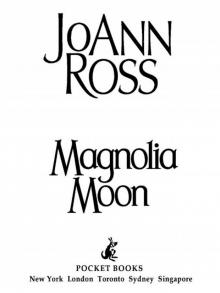 Magnolia Moon
Magnolia Moon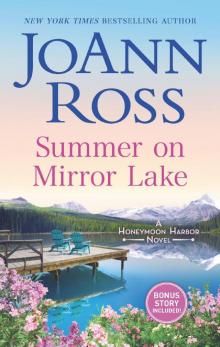 Summer on Mirror Lake
Summer on Mirror Lake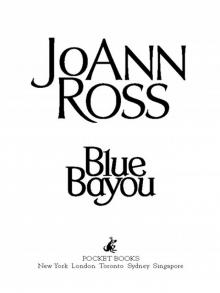 Blue Bayou
Blue Bayou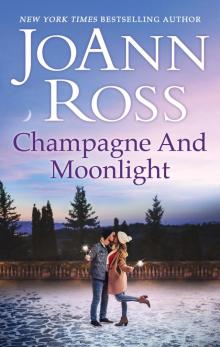 Champagne and Moonlight
Champagne and Moonlight No Regrets
No Regrets Long Road Home
Long Road Home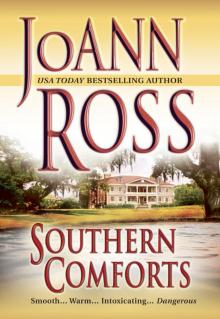 Southern Comforts
Southern Comforts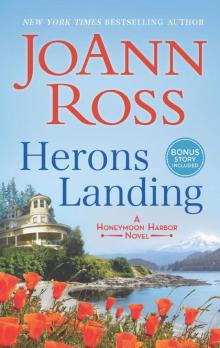 Herons Landing
Herons Landing Untamed
Untamed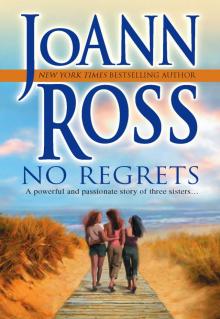 No Regrets (Mira Romance)
No Regrets (Mira Romance)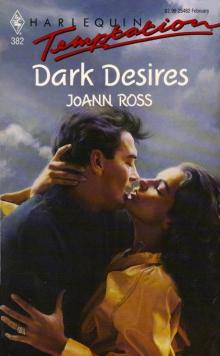 Dark Desires
Dark Desires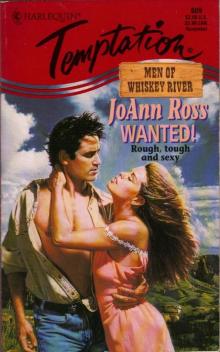 Wanted!
Wanted! River Road
River Road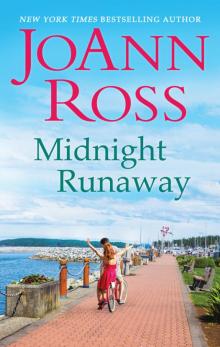 Midnight Runaway
Midnight Runaway The Long Way Back
The Long Way Back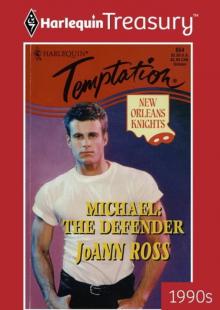 Michael: The Defender
Michael: The Defender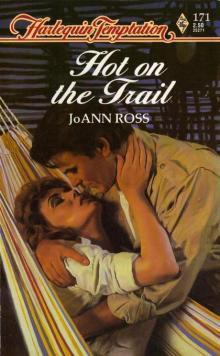 Hot on the Trail
Hot on the Trail When I'm With You
When I'm With You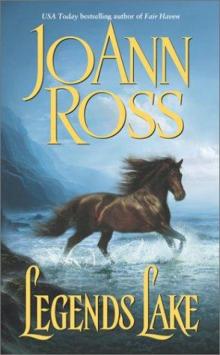 Legends Lake
Legends Lake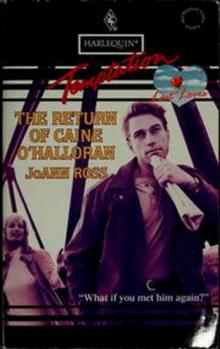 The Return of Caine O'Halloran
The Return of Caine O'Halloran Dance with a Dynasty
Dance with a Dynasty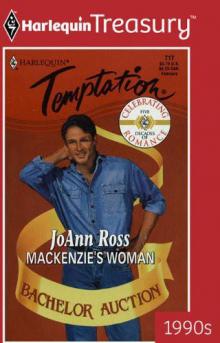 MacKenzie's Woman
MacKenzie's Woman Impulse
Impulse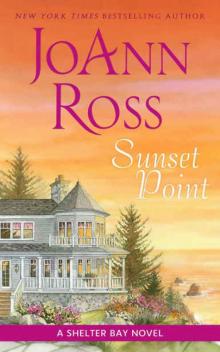 Sunset Point: A Shelter Bay Novel
Sunset Point: A Shelter Bay Novel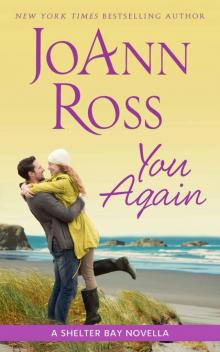 You Again: A Shelter Bay novella (Shelter Bay series Book 8)
You Again: A Shelter Bay novella (Shelter Bay series Book 8)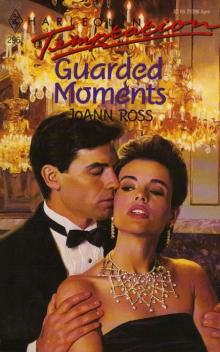 Guarded Moments
Guarded Moments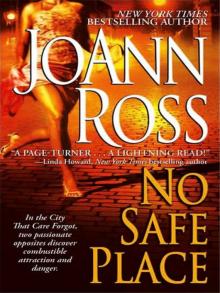 No Safe Place
No Safe Place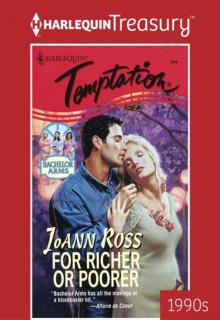 For Richer or Poorer
For Richer or Poorer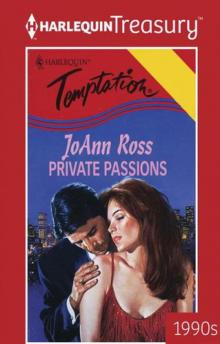 Private Passions
Private Passions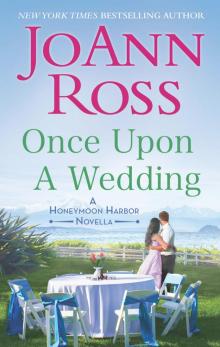 Once Upon a Wedding
Once Upon a Wedding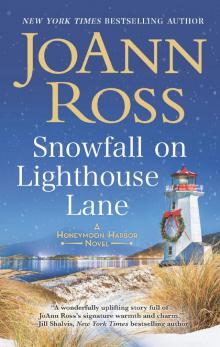 Snowfall on Lighthouse Lane
Snowfall on Lighthouse Lane Christmas on Main Street
Christmas on Main Street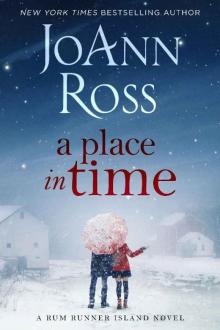 A Place in Time (Rum Runner Island Book 1)
A Place in Time (Rum Runner Island Book 1)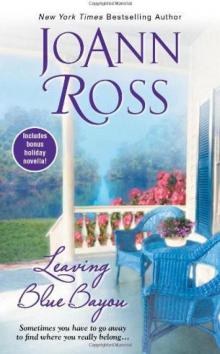 Leaving Blue Bayou
Leaving Blue Bayou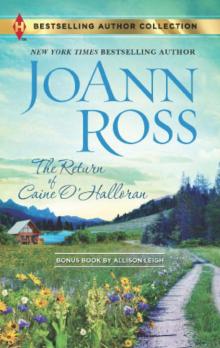 The Return of Caine O'Halloran: Hard Choices
The Return of Caine O'Halloran: Hard Choices Lucky in Love
Lucky in Love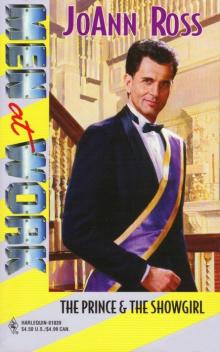 The Prince & The Showgirl
The Prince & The Showgirl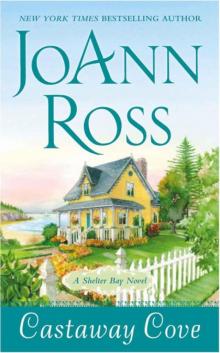 Castaway Cove
Castaway Cove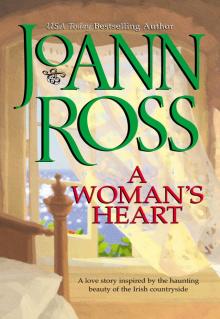 A Woman's Heart
A Woman's Heart One Summer
One Summer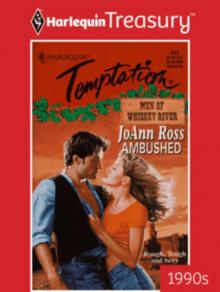 Ambushed
Ambushed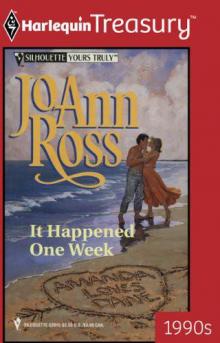 It Happened One Week
It Happened One Week Home by the Sea
Home by the Sea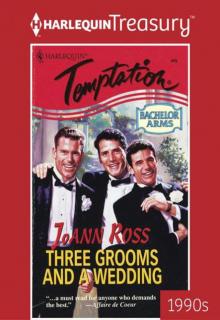 Three Grooms and a Wedding
Three Grooms and a Wedding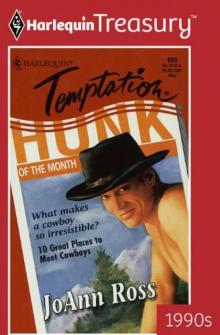 Hunk of the Month
Hunk of the Month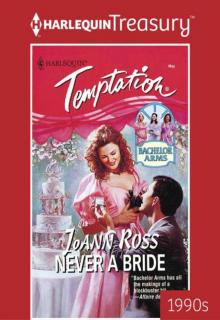 Never a Bride
Never a Bride Sun Kissed
Sun Kissed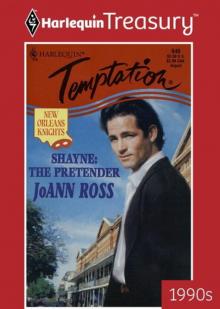 Shayne: The Pretender
Shayne: The Pretender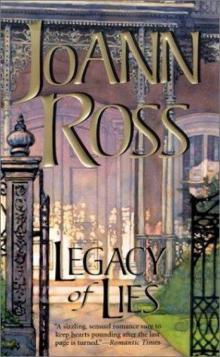 Legacy of Lies
Legacy of Lies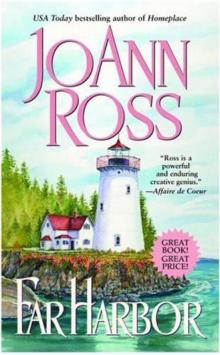 Far Harbor
Far Harbor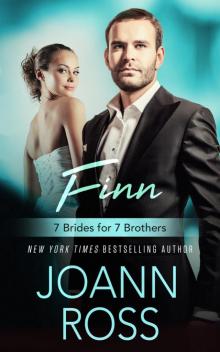 Finn
Finn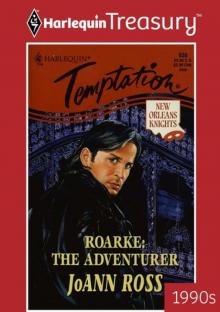 Roarke: The Adventurer
Roarke: The Adventurer I Do, I Do...For Now (Harlequin Love and Laugher)
I Do, I Do...For Now (Harlequin Love and Laugher) Briarwood Cottage
Briarwood Cottage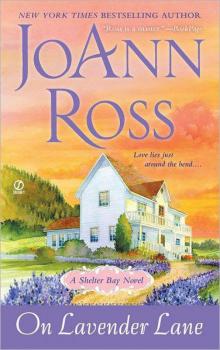 On Lavender Lane
On Lavender Lane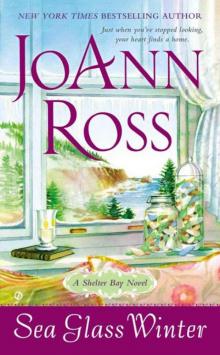 Sea Glass Winter
Sea Glass Winter River's Bend
River's Bend Christmas in Shelter Bay
Christmas in Shelter Bay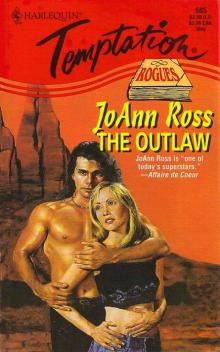 The Outlaw
The Outlaw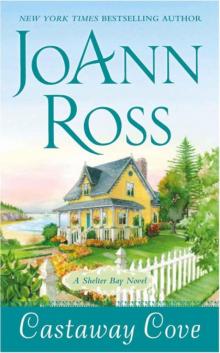 Castaway Cove (2013)
Castaway Cove (2013)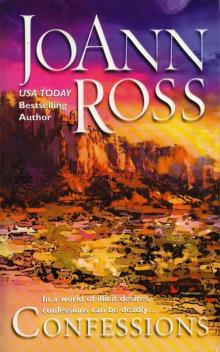 Confessions
Confessions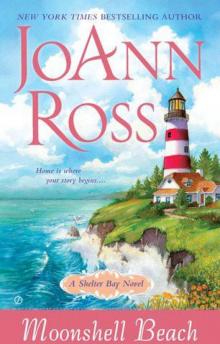 Moonshell Beach: A Shelter Bay Novel
Moonshell Beach: A Shelter Bay Novel